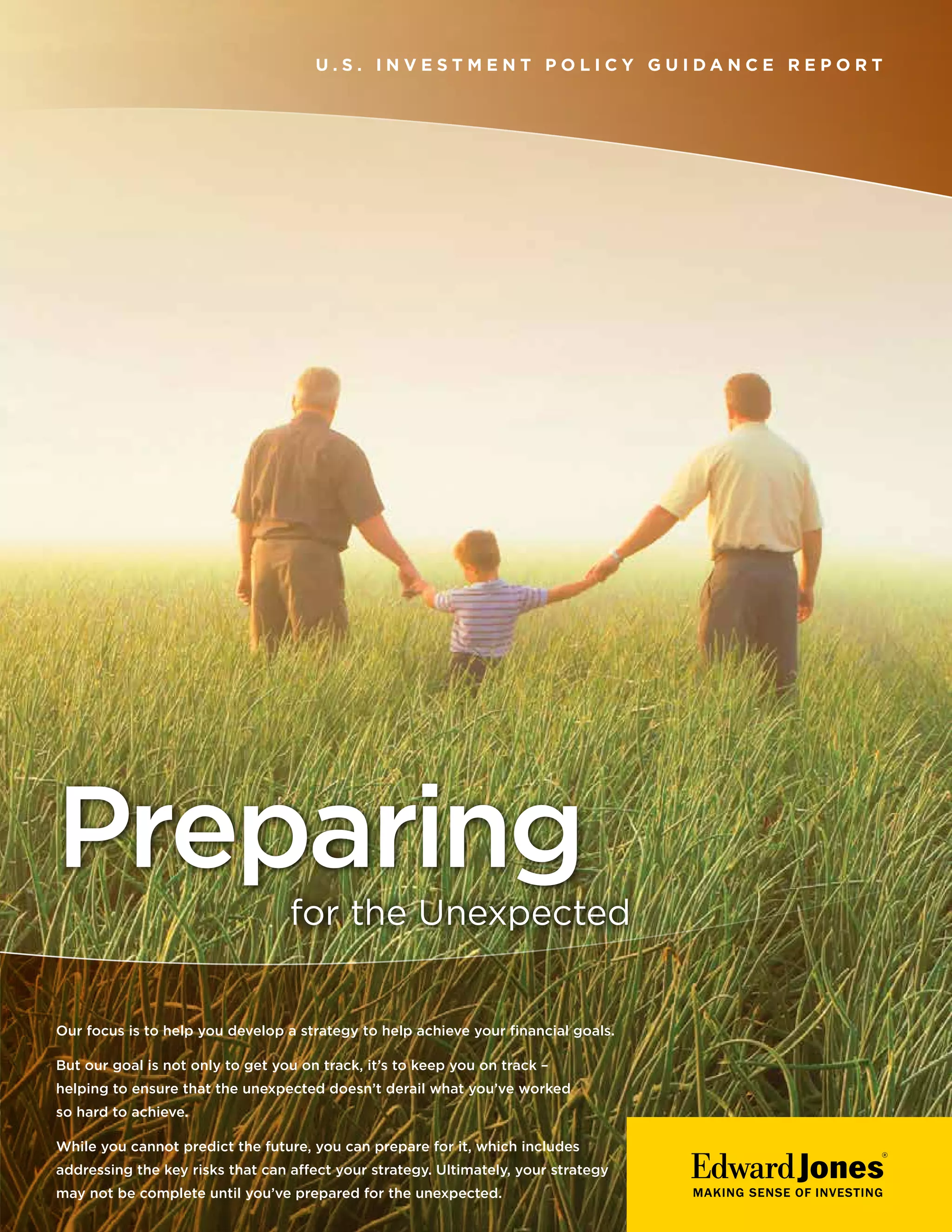This document provides guidance on developing an investment strategy and preparing for unexpected risks. It discusses the importance of having life insurance, disability insurance, long-term care insurance, annuities, and umbrella liability insurance to protect against risks like untimely death, disability, long-term illness, outliving savings, and personal liability issues. The document also stresses reviewing protection strategies every 3-5 years and after life changes to ensure current needs are met.





